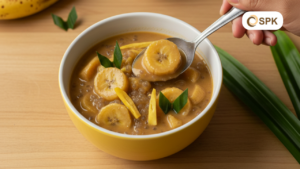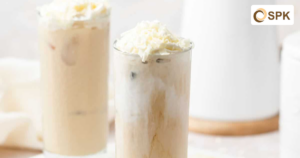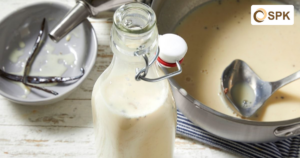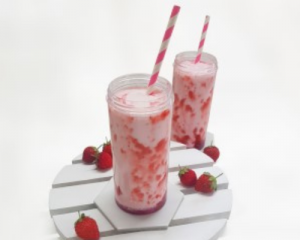Creamers have become essential in culinary and F&B industries – not just for enhancing coffee or tea, but also for cooking and processed foods. But did you know there are different types? From dairy to non-dairy and plant-based, each has unique characteristics.
Let’s explore these creamer varieties to help you choose the right one for your business or personal needs!
What Is Creamer?
Creamer is a milk substitute that adds creamy flavor and smooth texture to foods/beverages. Though similar in appearance to milk, creamers differ in base ingredients, nutrition, and applications.
Creamers generally fall into two categories:
-
Dairy (milk-based)
-
Non-dairy (non-milk based), which includes the increasingly popular plant-based options for health-conscious and eco-friendly consumers
Dairy vs. Non-Dairy vs. Plant-Based Creamer
Dairy Creamer (Milk-Based)
Made from processed cow’s milk containing lactose, calcium, vitamin D, and protein. Ideal for consumers without lactose intolerance who want milk’s nutritional benefits.
Examples:
-
Sweetened condensed milk
-
Fresh cream
-
Evaporated milk
Advantages:
- Rich in natural nutrients (calcium/protein)
- Enhances flavor complexity
- Maintains authentic milk taste in F&B products
Note: Contains lactose, making it unsuitable for vegans or lactose-intolerant individuals.
Non-Dairy Creamer (Plant-Based)
Uses vegetable oils processed into emulsions. Typically lactose-free with lower cholesterol.
Examples:
-
Powdered plant-based creamers
-
Liquid plant-based creamers
Advantages:
- Lactose-free
- Lighter yet creamier texture
- Heat-stable (won’t curdle in hot drinks)
- Versatile for various food/beverage applications
Plant-Based Creamer
The rising star of non-dairy options, made entirely from plants:
Base Ingredients:
-
Almond milk
-
Soy milk
-
Oat milk
-
Cashew milk
Benefits:
- 100% plant-based (vegan-friendly)
- Lactose-free & low cholesterol
- Some variants are lower-calorie than regular creamers
- Supports sustainability trends in F&B businesses
Creamer vs Milk vs Plant-Based Creamer
Many confuse creamers with milk. Key differences:
| Aspect | Creamer | Milk | Plant-Based Creamer |
|---|---|---|---|
| Base Ingredient | Vegetable/animal oils, sugar, emulsifiers | Natural cow/goat milk | Plants (soy, almonds, coconut) |
| Fat Content | High (often trans/saturated fats) | Saturated (dairy) fats | Usually low or unsaturated fats |
| Taste | Sweeter, creamier | Naturally mild sweetness | Lighter, less sweet |
| Protein | Typically low | High protein | Varies (soy=high, coconut=low) |
| Sugar | Added sugars high | Natural lactose | Lactose-free, may contain sweeteners |
| Calcium | Often fortified | Naturally rich | Some fortified varieties |
| Vegan-Friendly | No (unless specified) | No | Yes |
| Lactose | Usually contains | Contains | Free |
Fun Fact: Powdered creamers have longer shelf life than liquid versions, making them ideal for large-scale F&B production.
Why Choose Santos Creamer?
As a trusted creamer brand, Santos Creamer offers premium products designed for modern F&B needs:
✅ Premium ingredients
✅ Advanced processing technology
✅ Stable in various applications (hot drinks, processed foods, etc.)
✅ Perfect creamy taste without overpowering main flavors
Santos Creamer is the ideal partner for restaurants, cafes, and food manufacturers!
Choosing the right creamer depends on consumer needs and preferences. Whether dairy, non-dairy, or plant-based, each offers unique advantages. Most importantly, select quality creamers from trusted producers like Santos Creamer for optimal results.
Interested in trying our creamer products?
Contact the Santos Creamer team today for customized business solutions!













